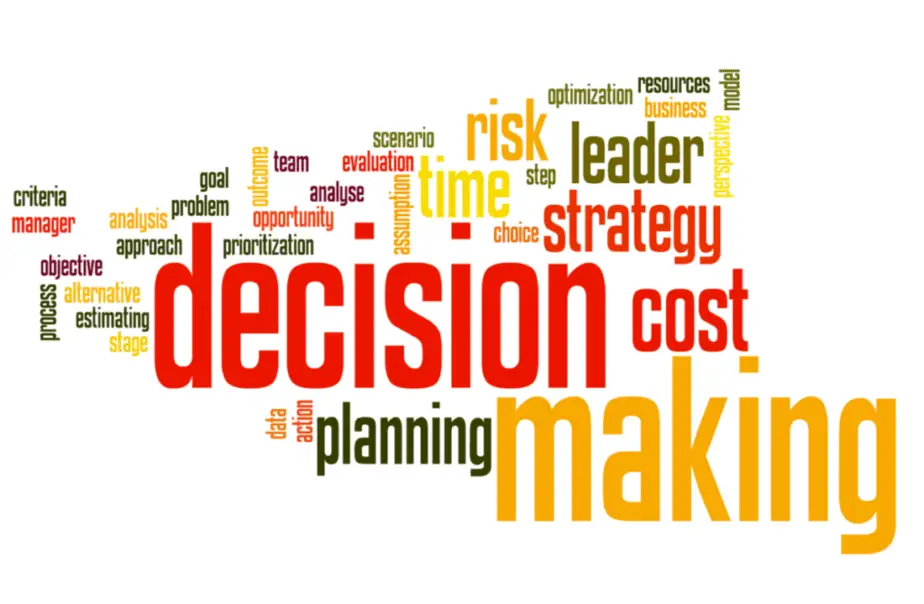
Making informed decisions is the bedrock of successful entrepreneurship. As an entrepreneur with years of experience, I understand the pivotal role that decision-making plays in shaping the trajectory of a business. It’s not just about making choices; it’s about making the right choices at the right time. In this dynamic and often unpredictable landscape, decision-making isn’t a luxury; it’s a necessity. Let’s explore why decision-making is the cornerstone of entrepreneurial achievement and how it can make or break your business aspirations.
Decision-making is the lifeblood of entrepreneurship. Every choice an entrepreneur makes, from identifying market opportunities to resource allocation and risk management, directly impacts the success of their venture. In the highly competitive and dynamic business landscape, adept decision-making is the compass that guides entrepreneurs towards their goals and helps them thrive in the face of challenges.
As we journey deeper into the realm of decision-making in entrepreneurship, you’ll discover not only the significance but also the strategies to enhance your decision-making prowess. Whether you’re just starting your entrepreneurial voyage or seeking to refine your decision-making skills, the insights ahead will provide valuable guidance. So, stay with us to unlock the secrets of effective decision-making in the entrepreneurial world.
The Essence of Decision-Making

Effective decision-making is the ability to select the best alternative among several options, considering various factors and potential outcomes. For entrepreneurs, these decisions can range from product development and market entry to financial investments and staffing. Each choice, whether big or small, shapes the trajectory of the business.
- Strategic Direction: Decisions set the strategic direction of a business. Entrepreneurs must constantly assess market trends, customer preferences, and competitive landscapes to make informed choices that keep the company on the right path. A well-timed pivot or expansion into a new market can be a game-changer.
- Resource Allocation: Resources such as time, money, and manpower are finite. Effective decision-making ensures these resources are allocated optimally, maximizing efficiency and profitability. Entrepreneurs must strike a balance between risk and reward, ensuring resources are invested wisely.
- Problem-Solving: Challenges and obstacles are inevitable in business. Decision-making equips entrepreneurs with problem-solving skills. Whether it’s resolving a production issue, managing a crisis, or addressing customer concerns, sound decision-making is essential for overcoming hurdles.
- Adaptation to Change: The business landscape is constantly evolving. Entrepreneurs must make decisions that enable them to adapt to changing market conditions. This could involve embracing new technologies, adjusting pricing strategies, or responding to shifts in consumer behavior.
- Risk Management: Entrepreneurship inherently involves risk. Decision-making involves assessing risks and taking calculated chances when necessary. Entrepreneurs must weigh potential rewards against risks, ensuring they are prepared to mitigate adverse outcomes.
- Innovation and Growth: Many groundbreaking innovations and business expansions are the result of bold decisions. Entrepreneurs who can identify opportunities and make innovative choices often experience significant growth.
- Building Trust: Consistent, well-thought-out decisions build trust among stakeholders, including employees, investors, and customers. Trust is a valuable asset that can enhance a company’s reputation and relationships.
Understanding Decision-Making
Before diving into strategies for improvement, it’s essential to understand the components of decision-making:
- Information Gathering: Effective decision-making begins with gathering relevant information. Entrepreneurs must research, analyze data, and consult experts when necessary to have a clear understanding of the choices before them.
- Risk Assessment: Decision-making involves assessing potential risks and rewards. Entrepreneurs should weigh the potential consequences of each choice and determine their risk tolerance.
- Critical Thinking: Critical thinking skills are crucial. Entrepreneurs should evaluate alternatives, consider long-term implications, and think logically.
- Emotional Intelligence: Decision-making is not purely analytical; it often involves understanding emotions. Entrepreneurs should be aware of their emotions and those of others, as emotions can influence choices.
Now, let’s explore strategies for developing these decision-making abilities:
- Continuous Learning: Stay curious and commit to lifelong learning. This includes staying updated on industry trends, understanding new technologies, and expanding your knowledge base.
- Seek Diverse Perspectives: Don’t make decisions in isolation. Seek input from mentors, advisors, and team members. Diverse perspectives can provide valuable insights and uncover blind spots.
- Practice Critical Thinking: Engage in activities that promote critical thinking, such as solving puzzles, debating, or participating in brainstorming sessions. These exercises can enhance your ability to analyze situations objectively.
- Simulate Decision-Making: Consider using decision-making simulations or case studies. These exercises allow you to practice making choices in a risk-free environment and learn from both successes and failures.
- Meditation and Mindfulness: These practices can help entrepreneurs manage stress and improve their ability to think clearly under pressure, leading to better decision-making.
- Decision Journaling: Keep a journal of your decisions and their outcomes. Reflect on what worked and what didn’t, and identify areas for improvement.
- Embrace Failure: Don’t fear failure; see it as an opportunity to learn. Analyze decisions that didn’t yield the desired results and use this knowledge to make better choices in the future.
- Set Decision-Making Criteria: Establish clear criteria for decision-making. Determine what factors are most important for your business and use these as a framework for evaluating choices.
- Feedback Loop: Create a feedback loop within your organization. Encourage open communication and feedback from your team, and be willing to adjust your decisions when new information becomes available.
- Decision Delegation: Recognize that you can’t make every decision. Delegate decisions that don’t require your direct involvement to trusted team members, empowering them and freeing up your time for more critical choices.
Conclusion
In the entrepreneurial world, decision-making isn’t just a skill; it’s a lifeline. The ability to make informed, strategic choices is what sets successful entrepreneurs apart. From charting the course of their businesses to navigating challenges and seizing opportunities, decision-making is the compass that guides them. Aspiring and seasoned entrepreneurs alike must recognize the importance of this skill and continually hone it to thrive in the ever-changing business landscape. In this context, decision-making becomes a skill that can be honed and refined through an understanding of its components and the implementation of improvement strategies. By embracing learning, seeking diverse perspectives, and practicing critical thinking, entrepreneurs can confidently navigate the complex entrepreneurial terrain, making it an indispensable trait for entrepreneurial success.

